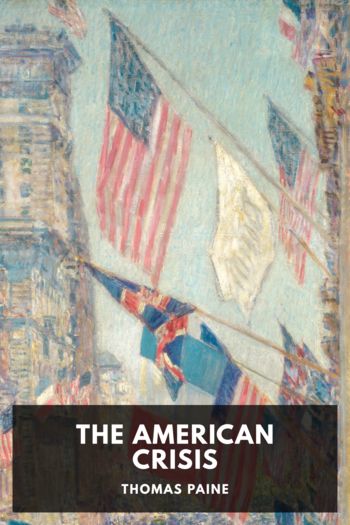Short Fiction, Vladimir Korolenko [finding audrey TXT] 📗

- Author: Vladimir Korolenko
Book online «Short Fiction, Vladimir Korolenko [finding audrey TXT] 📗». Author Vladimir Korolenko
“I loathe you,” said the seer with aversion.
“I know it. Because you considered yourself free and I am Necessity, the mistress of every movement.”
Then Darnu became angry; he seized the fifty joints of the reed, broke them off, and flung them away. “So,” he said, “so will I deal with the fifty joints of my life, because during these fifty years I was merely the tool of Necessity. Now I will free myself, because I have seen and I want to break my yoke.”
But Necessity, invisible in the darkness which surrounded the dull gaze of the sage, laughed and repeated:
“No, poor Darnu, you are still mine, because I am Necessity.”
Darnu opened his eyes with difficulty and suddenly he felt that his feet were swollen and painful. He started to rise, but at once he sank back again. Because he now saw clearly the significance of all the inscriptions and calculations in the temple. As soon as he began to move his limbs, he saw that his desire to do so had already been written on the wall.
As from another world, the voice of Necessity came to his ears:
“Rise now, poor Darnu; your limbs are swollen. You see 999,998 of your brothers in darkness do it. … It is necessary.”
In disgust Darnu remained in his former position, which now became still more painful. But he said to himself: “I will be one of those in the darkness who will not submit to Necessity, because I am free.”
Meanwhile the sun had reached the zenith, and as it looked through the holes in the roof, it began to parch the ill-protected body of the sage. … Darnu stretched out his hand toward his gourd.
But he at once saw what was written on the wall under the number 999,998 and Necessity again said:
“Poor sage, it is necessary that you drink.”
Darnu left the gourd untouched and said:
“I will not drink, because I am free.”
There came a laugh from a distant corner of the temple and at the same time one of the fruits of the fig-tree grew too heavy to hang any longer and fell at the feet of the sage. At the same time a number on the wall changed. Darnu realized at once that this was a new attempt of Necessity to destroy his inner liberty.
“I will not eat,” he said, “because I am free.”
Again there came a laugh from the depths of the temple and he heard the murmuring of the brook:
“Poor Darnu!”
The sage became more angry. He remained motionless without looking at the fruit which from time to time fell from the boughs, without hearkening to the seductive murmur of the waters, and he kept repeating one phrase to himself: “I am free, free, free!” And that no fruit might thwart his freedom by falling directly into his mouth, he closed it tightly and clenched his teeth.
Thus he sat for a long time, freeing himself from hunger and thirst and trying to spread abroad to all the corners of the earth confidence in his inner liberty. He grew thin, dried up, became wooden, lost track of time and space. He could no longer distinguish day and night, but he kept repeating and asserting to himself that he was free. After a certain space of time, the birds became accustomed to his immobility, flew up and perched upon him, and still later a pair of wild doves built their nest on the head of the free sage and heedlessly brought forth their young in the folds of his turban.
“O foolish birds!” thought wise Darnu, when first the calling of the parents and the peeping of the young penetrated his consciousness. “They do all this because they are not free and obey the laws of Necessity.” And even when his shoulders were covered with the droppings of the birds—he again said to himself:
“Fools! They do this too, because they are not free.”
He counted himself perfectly free and close to the gods.
Below, out of the soil, the thin tendrils of climbing vines began to rise and to wind themselves around his immovable limbs. …
IVOnly once was the wise Darnu partially recalled from complete unconsciousness and at that time he felt in some remote corner of his mind a sensation of mild





Comments (0)